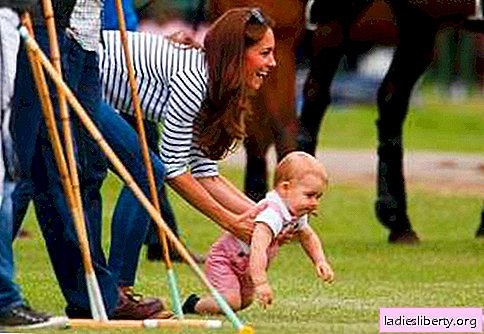
The initiator of the foundation of this holiday, which is celebrated on the second Thursday of October, is the World Health Organization (WHO). Its goal is to draw attention to the problems of people with visual impairments, of which there are about 284 million people in the world (among them 39 million are completely deprived of the ability to see). However, in about 80% of cases of blindness, it could be prevented with timely treatment. That is why WHO considers its task on this day to carry out educational and preventive measures aimed at preventing eye diseases.
On this day in 1992, the Chairman of the Presidium of the Supreme Council of Abkhazia Vladislav Ardzinba signed a decree that created the Ministry of Defense and the General Staff of the Republic of Abkhazia. Its signing took place at the height of World War II, which Abkhazia led for its independence from Georgia. Today, Abkhazia has a modern and combat-ready army with ground forces, as well as the air force and naval forces.
October 11 commemorates the Monk Chariton the Confessor, who suffered during the persecution that Christians suffered under Emperor Aurelian. Khariton the Confessor lived in the 3-4 centuries of Asia Minor, in Iconium. He was severely beaten by persecutors and imprisoned, where he stayed until the reign of Emperor Tacitus. After his release, he went to Jerusalem, but was captured by robbers along the way. However, he was miraculously saved: the robbers drank the wine, poisoned by snake venom, and died. Chariton built a church in their cave and founded the community of Christians - the Faran Lavra, which became the first monastic monastery in the Judean desert.
The people of Kharitonov were feared and tried to spend it at home, so as not to become a victim of damage or the evil eye. They didn’t even do household chores, especially they didn’t get dirty from the house, so as not to provoke disaster.
Grooms with brides on Chariton secretly visited the village sorceress and brought her pies and honey as a gift, trying to appease, so as not to become a victim of her evil charms.
This day is very rich in birthday parties. So, on October 11, they celebrate Alexander, Alexei, Anatoly, Anna, Athanasius, Valentina, Vasily, Vyacheslav, George, Gregory, Ivan, Illarion, Ilya, Isaac, Cyril, Makar, Maria, Mark, Matvey, Moses, Prokhor, Sergey, Tatyana , Fedor, Chariton.
In 1702 Russian troops captured the Swedish fortress of Noteburg, built on Lake Ladoga, opposite the city of Shlisselburg. Since 1612, the fortress was part of Sweden. Peter I, who was at the time waging the Northern War, attributed the capture of Noteburg to tasks of primary importance. However, it was impossible to realize these plans without a fleet, since the fortress of Notburg was located on the island. Thirteen ships were built especially for her assault in Arkhangelsk. The siege began on September 27, 1702, and ten days later the fortress was taken by storm and, again becoming Russian, was renamed Shlisselburg.
In 1783 in St. Petersburg founded the Russian Academy. Its difference from the Academy of Sciences was that it was created to develop not exact sciences, but humanitarian ones. By order of the empress, she headed the Russian Academy, Yekaterina Dashkova, who saw the main task of the academy in “composing grammar and a dictionary.” Dashkova did a lot for the development of the Academy. Thanks to her efforts, new fonts appeared in the academic printing house, new books appeared in the library. work on compiling a catalog of books, putting in order the collections of minerals and the archive, as well as improving the staff of the Academy.
In 1852 the University of Sydney was inaugurated, organized by the decision of traveler, journalist and politician William Wentworth of existing Sydney College. At first, there were only three professors in the state of Sydney University, with 24 students trained. Today, the University of Sydney is a member of the Australian G8, which, by analogy with the American Ivy League, unites the country's most prestigious educational institutions, and 2,300 of its teachers are taught by about 46 thousand students.
In 1931 private trade was completely abolished in the USSR and the period of the NEP, the new economic policy, which replaced “war communism” in 1922, ended. Thanks to NEP, the economy revived and the destructive consequences of "war communism" were quickly overcome. However, in the late 1920s, persecution of village private traders and urban "NEPMans" began, which resulted in confiscation of property, deprivation of their political rights and prosecutions.
In 1961 The first underground nuclear explosion took place in Semipalatinsk at a former test site. Over the years of the landfill's existence, there were 456 nuclear explosions, as well as 175 explosions, in which chemical explosives participated. In 1991, the Semipalatinsk test site was closed by decree of the President of the Kazakh SSR N. Nazarbayev; Since April 1996, an agreement was signed by the National Nuclear Center of Kazakhstan and the Nuclear Safety Agency under the US Department of Defense, in accordance with which work began on the elimination of tunnels and adits of the landfill. The Semipalatinsk test site ceased to exist on July 29, 2000, after the explosion of the last adit.
In 1982 in the Solent Strait, located to the west of Portsmouth, they raised the multi-ton part of the hull of the English combat sailing ship Mary Rose, which sank in July 1545. This ship was built by personal order of Henry VIII, but sank, according to researchers, due to overload and unsuccessful maneuvering in the strait. The ship was found in 1965 by the English writer and submariner A. Mackey, after which funds were raised by a specially created fund, and in 1982 the ship was launched. Despite a number of technical difficulties, it ended successfully, and a separate pavilion of the museum complex in Portsmouth stores the surviving fragment of the legendary ship.
In 1994 there was a “collapse” of the ruble against the dollar, caused by unheard of inflation. This Tuesday, popularly nicknamed "black," the Moscow International Currency Exchange registered a dollar appreciation from 3,081 to 3,926 rubles.
Boris Andreevich Pilnyak (Borey), (1894-1938), Russian and Soviet writer, author of The Tale of the Unburdened Moon (1926), in which the death of Mikhail Frunze was veiled. For this novel, Pilnyak was arrested in October 1937, and in April 1938 sentenced to be shot by a military collegium of the Supreme Court of the USSR.
Mikhail Ivanovich Davydov (born in 1947), a talented Soviet and Russian surgeon, academician of the Russian Academy of Sciences, doctor of medical sciences, Honored Scientist of the Russian Federation, laureate of the State Prize in the field of science and technology, known to the world as an innovator in the treatment of such serious diseases, as lung and stomach cancer, a mediastinal tumor, and also as the founder of the national school of oncologist surgeons.
Hilda (Miriam Alejandra Bianchi), (1961-1996), Argentinean singer, the most popular member of the triple music movement, who died in a car accident in 1996 at the peak of her fame.
Igor Wernick (born in 1963), Russian theater and film actor, TV presenter, Honored Artist of Russia.
Eleanor Roosevelt (1884-1962), wife of Franklin Roosevelt, 32nd U.S. President, the only American First Lady to complete this mission four times since her husband was the U.S. President for four terms, from 1933 to 1945. Eleanor Roosevelt was well educated and educated, and also distinguished by political and religious tolerance. She participated in the creation of the UN and the Universal Declaration of Human Rights. Harry Truman, Roosevelt's former successor, called her "First Lady of the World."
Francois Moriac (1885-1970), French writer, Nobel laureate.











